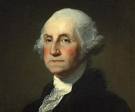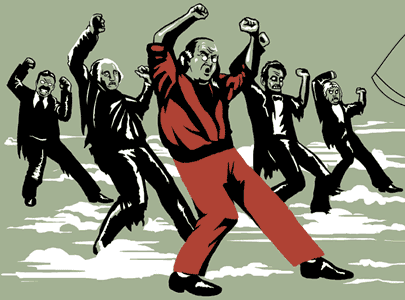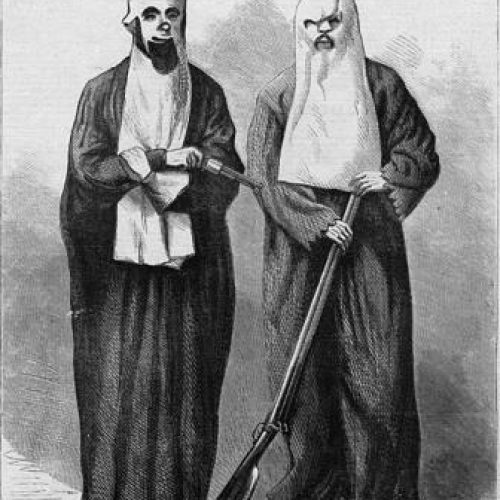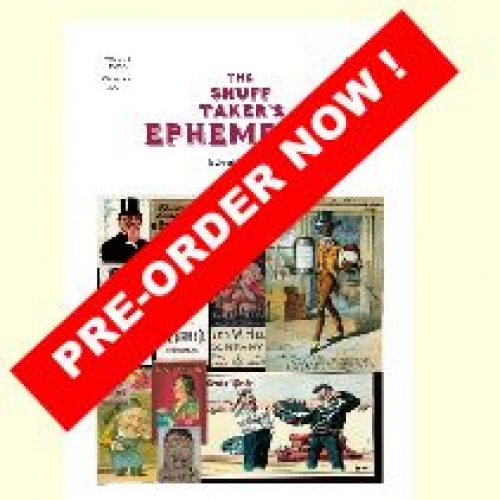Tobacco, the American Revolutions of 1776…..and Today?
 The “Age of Enlightenment” was a time in world history that was characterized by massive revolutions in thought, government, religion, arts, science, economics, and humanity. Beginning roughly with the publications of philosopher René Descartes philosophical and mathematical rationalizations of the 1630’s, and ending with the French Revolution in 1789, the movement was a general call to arms from a world escaping the “dark ages” of European Middle History.
The “Age of Enlightenment” was a time in world history that was characterized by massive revolutions in thought, government, religion, arts, science, economics, and humanity. Beginning roughly with the publications of philosopher René Descartes philosophical and mathematical rationalizations of the 1630’s, and ending with the French Revolution in 1789, the movement was a general call to arms from a world escaping the “dark ages” of European Middle History.
The movement could best be summarized by one word: “rebellion“. The people questioned, and subsequently rejected, the authority of their kings and governments. The “rationalists” (as they were known) pondered the authority of the Church in presiding over God’s laws. Science was elevated into something beyond the blasphemous alchemy that it was viewed as previously. Philosophy was seen as something important and potentially dangerous, and not just as something that homosexual poets wrote to impress one another. The poor rebelled against the rich ruling class, and the “bourgeois” were put to death in violent, public coups.
Tobacco, the Age of Enlightenment, and the American Revolution
For the first time in history, the scholars and artists, the poor and the middle class, the soldier and the citizen- all collectively made their voices heard. “We’re sick and tired of being told what is best for us,” they said, “and we will no longer be made to obey the rules of society- instead, we shall rebuild it in our own image.” One prop that almost every figurehead of this new school of thought carried on his person was that of tobacco.
Whether in Europe or elsewhere, everyone was partaking of the new wonder drug that Sir Walter Raleigh had brought back from the New World. Tobacco was loved by young and old, rich and poor, male and female. Tobacco, more than any other single thing, was the deciding reason for England developing its colonies in America. It saved the Jamestown settlers from starvation and served as the first currency in this country. And right from the beginning, politicians realized its importance as a taxable commodity.
King George enacted the Tobacco Adulteration act of 1733. It was presented as an appeal to public health, but it was just a way of securing more tax for the King. The act forbade the amount of non-tobacco additives that could be added to a commercial recipe for snuff or pipe tobacco. Since this meant that the tobacco makers basically had to double their tobacco purchasing from then on out, many went out of business overnight and the others had to increase their prices significantly. The people were outraged.
The King followed that law with the Warehouse Act, which made federal inspection of all tobacco imports mandatory, again driving up the cost and choking supply. This time, the people took to the streets with their displeasure, and began rioting in London. The Government’s response to the rioting was to explain that since tobacco was not a necessity, it was privy to as much taxation as the Crown saw fit. The people rebutted by setting fire to Leicester Square. Before the flames could reach the House of Commons, the tobacco laws were publicly repealed.
A tobacco trade magazine of the time expressed its contempt thusly: “Since when has tobacco become a luxury? Don’t the poor use it along with the rich? How many people wait until evening for their meal, but chew or puff all the day long? Classing tobacco as a luxury for the rich is effectively starving the poor. It would be no different than taxing meat and bread.”
One of the chief figures of the Age of Enlightenment was Adam Smith. A brilliant thinker, he is perhaps best known for introducing the term (and concept) of Economics to the rest of Europe. He was furiously opposed to tobacco taxes and regulation. An article he wrote in 1740 sums up his disgust with politicians:
“It is the highest presumptive arrogance therefore, in politicians and ministers, to pretend to watch over the well-being and economy of private citizens. [It is wrong to] restrain their spending, either through excessive taxes or bans on imported goods. The politicians themselves are always, without exception, the most wasteful spenders in society. Let them look after their own affairs, and the people likewise. If the spending habits of the politicians do not bankrupt the state, neither will those of the public. “
It was a scathing indictment of the British nanny state of the times. While careful to avoid riots in his own country, King George was not above unfairly taxing his Colonial subjects across the pond. What the Brits would not pay, Americans would.
The law decreed that every tobacco grower in the Colonies had to deliver a certain quota each harvest. The King took it upon himself to tax the proposed crop yield before it was even grown, much less delivered to England. The government was taxing the grower, the picker, the shipper, the tobacconist, and the customer, on goods both tangible and nonexistent. Within a matter of months, noted tobacco growers such as George Washington, Thomas Jefferson, Benjamin Franklin, and Paul Revere realized that one poor harvest could potentially leave them in financial debt for several years.
 When that harsh winter did come, George Washington told the British government that he would forever be in debt by being required to grow a certain amount of tobacco each year, and pay for that privilege regardless of whether he could produce or not. The British government understood his argument, and responded by making the English tobacconists forward advance payment to American growers. The interest charged by British shopkeepers on the advance royalties was as high as 90% in some cases, and the forwarded “loans” were also taxed by the government.
When that harsh winter did come, George Washington told the British government that he would forever be in debt by being required to grow a certain amount of tobacco each year, and pay for that privilege regardless of whether he could produce or not. The British government understood his argument, and responded by making the English tobacconists forward advance payment to American growers. The interest charged by British shopkeepers on the advance royalties was as high as 90% in some cases, and the forwarded “loans” were also taxed by the government.
This meant that instead of receiving steady payment from the tobacco distributors, the farmers soon found themselves owing not only the government, but the shopkeepers themselves. Starving farmers and their families eagerly awaited windfall payment from abroad, only to be met by greedy creditors intent on driving them from their homes and seizing their land. Thomas Jefferson remarked that “these debts have become hereditary, from father to son, for many generations. [Tobacco farmers] have become a species of property annexed to the British tobacco houses.”
Prime Minister George Grenville added outrage to injury by raising tobacco taxes again in order to help fund the Seven Year War. The printing presses of the Colonies were ablaze with talks of revolt and self-governing independence. When some of these papers made their way back to the King, he attempted to stifle freedom of press by introducing the Printing Tax, otherwise known as the Stamp Act. The colonists cried “No taxation without representation!” and “Repeal the Stamp Act!” Fearing rebellion, Britain repealed the tax.
Having taxed tobacco to the breaking point, the British then set their eyes on the Tea trade. Tea (and tobacco) had become so expensive that black market smuggling was rampant. The Colonists enjoyed importing duty-free tea that came directly from India instead of getting held up in British customs, where it was summarily taxed exorbitantly. The Colonists repaid the Indians with tobacco that had been earmarked for the Crown.
The British Navy began intercepting these merchant ships and seizing their contents. The Americans responded by refusing shipment of British tea, leading to the historic Boston Tea Party of 1733. What many people don’t know is that among the three shiploads of tea that were dumped in Boston Harbor, there were three hogsheads of tobacco (bound for England) that were also tossed in the water.
The Earl of Chatham wrote “The Americans must be subordinate. This is the Mother Country. They are children. They must obey, and we must prescribe.” The Americans obeyed by drafting the Declaration of Independence. Of its 56 signers, 55 were involved in the tobacco trade, and that lone remainder was a noted pipe smoker. America truly was a country founded on tobacco, God, and freedom; quite possibly in that order. Which brings us to today, the Digital Age (of Enlightenment?)
America, 2010
If you have made it this far, then hopefully you have realized the correlation between the insane taxes and tobacco legislation that prompted us to start our own country 200+ years ago, and the unfair prices and regulation that the politicians of today heap upon us in droves.
The Tobacco Adulteration act of 1733 has been remade into The Tobacco Act of 2009, or FDA control of tobacco, became the law of the land with President Obama’s signature. We have “feel good” legislation disguised as being beneficial to the health of tobacco users, which in reality is nothing but a law designed to line the pockets of the government. While pretending to make tobacco safer, in reality the FDA is attempting to keep us hooked on cigarettes (which they tax mercilessly) while stifling reduced harm and smokeless tobacco products, which historically have never returned as much revenue for the government as smoking tobacco.
We have the Warehouse Act reincarnated as the PACT Act legislation. Today, just like three hundred years ago, politicians are banning private delivery of tobacco in a law that (on paper) is designed to end smuggling, but in reality it’s just to ensure that the government collects all possible taxes from tobacco that they can. By taxing it to death then, as now, the Government has created a huge black market of smuggled tobacco goods, and instead of lowering the taxes, they want to waste even more of your money and freedom by banning mail order sales of tobacco.
The “rich mans” tobacco of choice, the cigar, is curiously exempt from such legislation, just as snuff (which the nobility of the 1700’s cherished above all other methods of taking tobacco) was exempted from the Warehouse Act. It’s just as hypocritical today as it was three centuries ago.
The government is shamefully impoverishing the tobacco growers of today just as they did prior to the Revolution. There are less than 30,000 real tobacco farms in this country today, compared to the 550,000 tobacco farms operating in 1950. Even accounting for the drop in tobacco use now compared to sixty years ago, there should be at least 200,000 tobacco farms in this country.
The government helped to create a monopoly on tobacco farms by forcing small growers to diversify their crops and to sell their tobacco interests to the three or four large corporations in this country that own a majority of tobacco farms in the US. The poor got poorer, and the rich got richer.
There is also increased competition from third world growers who supply the majority of tobacco in the market today. BAT and Phillip Morris would rather pay some migrant farmer in Zimbabwe three cents a pound for his tobacco than to pay some Kentucky statesman three dollars a pound. The United States has gone from producing 90% of the world’s tobacco to producing less than 10% today.
Will we react to the government the way our ancestors did, by attempting to burn down the White House or rioting in the streets of Washington, DC? Will we rebel against unfair taxation by declaring our independance from the tyrants who try to keep us in line by telling us what is best for us, through unfair taxation and tobacco importation bans? Go back and re-read Adam Smith’s quote above, and tell me that he isn’t speaking directly to the Ted Kennedys and Hillary Clintons and Henry Waxmans and Barack Obamas of today.
I’m certainly not advocating violence against our lawmakers, but they seem to have conveniently forgotten such trivial events as the American Revolution, the War of 1812, the Battle of little Bighorn, the Alamo, the Civil War, and the Civil Rights Movement of the 1960’s. America has always defended her freedom with the blood of her patriots, and only time will tell what the spark will be that will ignite the next uprising. If you look back chronologically, we’re due for such a revolution any day now.
Americans have tired of being told what is best for them. The same people whom we have elected as our servants have embraced this parallel fantasy world where we have become once again not citizens, but subjects. Their revisionist history paints our founding fathers as a bunch of atheist slavemasters who certainly never intended for us to own guns or recite prayer in school. They view the Constitution and Bill of Rights with equal disdain, insisting that either one is so flawed a document that neither should have any bearing on the America of today.
The absolute authority of the federal government and the unquestionable actions of its legislators have seemingly ushered us back into a Draconian society that mirrors the European Middle Ages. Where exactly do we go from there? George Bernard Shaw wrote that “we learn from history that we learn nothing from history.” This is obvious, for we are repetitiously doomed to recycle our past for the benefit of the greater good.
The Future… and Zombies?
But, with the technological advances and social strides we have made in the ensuing decades, have we not created a new Age of Enlightenment? Many would say “yes”- and then quickly add that tobacco has no function in this brave new world. Some would have you believe that the original Age of Enlightenment was anything but- that it was a period marked with bloody wars and violent revolutions that did little to advance the human race. They would probably blame tobacco for a lot of the problems that occurred back then.
brave new world. Some would have you believe that the original Age of Enlightenment was anything but- that it was a period marked with bloody wars and violent revolutions that did little to advance the human race. They would probably blame tobacco for a lot of the problems that occurred back then.
Then there are those few errant souls that believe that tobacco was a catalyst that helped spark the Age of Enlightenment, and still has a place in today’s society. We know more about science now than at any time in our development, and we know that tobacco can be used safely and at a level of risk that is so low that it makes eating fried chicken look like shooting heroin. We are known as snusers, and whether the politicos want to hear it or not, our voices will boom from every direction.
I know that it has become somewhat of a cliche to say this, but if the founding fathers and patriots were alive to see that all that they fought and died for was in vain, they would not only roll over in their grave, but their reanimated zombie corpses would rise from the earth and march onto the Capital, and feast upon the brains of all those politicians that think that the general populace needs to be told what to spend their money on and to be “kept in line for their own good.” They would recognize it as the same sort of corrupt ideology that they purged from this great land in their own time, and Zombie Washington, Zombie Franklin, Zombie Jefferson, and Zombie Adams would probably return to their homesteads and do what they did best (when they weren’t busy starting a country): growing, using, and defending tobacco- as well as the rights of those who use it.
As Tobacco and American History Repeat Themselves,
R.R. HUBBARD
The World According to Feck
Writing for SnusCENTRAL.org
About author
You might also like
The PACT Act and the Weinergate Legacy
It’s just under 100 days since Anthony Weiner accidentally posted a photo of his penis to his public Twitter account. In the ensuing scandal of lies, attempted cover-ups and general
Night Riders and Hillbillies: The Kentucky Tobacco War
With all the recent legislation that aims to prohibit the use of tobacco among adult consumers, we often forget about the people caught in the middle: the tobacco farmer. The
A Real Snus Review – 2011 Releases not all Great
Hello ladies and gents. It’s been quite a while since I’ve done a column here at SC, but we’ve been busy as sin trying to get the new issue of



